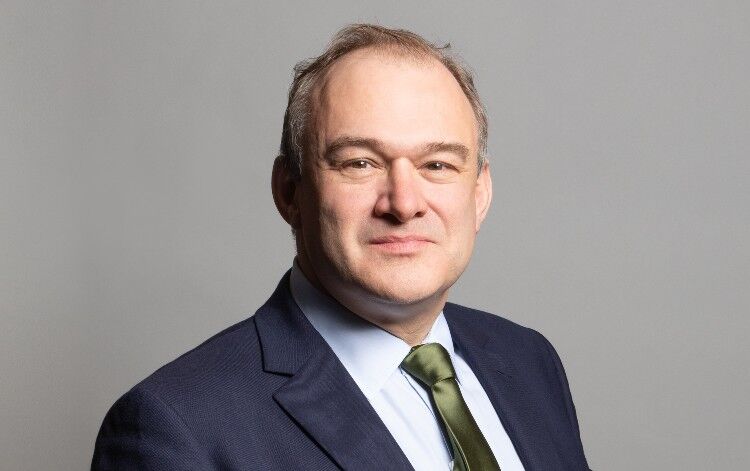Pharmacists would be given increased prescribing rights and deliver public health advisory services under the Liberal Democrats, an election manifesto published by the party today has promised.
The Liberal Democrats would also ‘work towards a fairer and more sustainable long-term funding model for pharmacies and build on the Pharmacy First approach to give patients more accessible routine services and ease the pressure on GPs’, they said.
And the party would make prescriptions for people with chronic mental health conditions free on the NHS, as part of a wider commitment to review prescription charge exemptions.
Leyla Hannbeck, Liberal Democrat parliamentary candidate and chief executive of the Independent Pharmacies Association (IPA), told The Pharmacist that she had been working closely with the Liberal Democrat leadership team to discuss 'the important role our sector can play as a front door to the NHS if supported and funded appropriately'.
'I am very pleased that NHS and our healthcare system is at the heart of the Lib Dem manifesto, and the support for community pharmacy network as a key part of our NHS and health service is within the manifesto,' she said.
Related Article: MAPPED: Some constituencies have fewer than ten pharmacies
And she added that the IPA would continuing working closely with parliamentarians to ensure best outcome for the community pharmacy sector and the communities it served.
Also commenting on the Liberal Democrats' manifesto, Paul Rees, chief executive of the National Pharmacy Association (NPA) described the funding commitment as 'excellent news' which he hoped 'heralds a growing political consensus around the need to properly support pharmacies to deliver better, more local health care for millions'.
He added: 'Their promise to build on the Pharmacy First approach to give patients more accessible routine services and ease the pressure on GPs also points to cross party agreement that we need a stronger pharmacy network to support communities up and down the land.
'The stark fact is that pharmacies are facing a financial crisis and are closing at the rate of 10 a week so whoever forms the next government needs to invest in the network so people do not lose this fabulous local health service that represents the front door to our NHS.'
Meanwhile Malcolm Harrison, chief executive of the Company Chemists’ Association (CCA) said the association ‘wholeheartedly’ welcomed the Liberal Democrats' call for a ‘fairer and more sustainable long-term funding model’ for community pharmacy.
‘With a 30% real-terms cut in core funding since 2015 and nearly 1,200 closures in that time, the current funding framework is untenable,’ he said.
‘Moreover, the party’s pledge to build on the Pharmacy First service is a no-brainer which will free up GP capacity and improve patient access.
‘The manifesto also rightly talks about extending prescribing rights and public health advisory services to pharmacists. Independent prescribing is a generational opportunity which we must not waste,’ he added.
Related Article: NHSE to ‘expand’ community pharmacy RSV vaccine offer
Janet Morrison, chief executive of Community Pharmacy England (CPE) said the negotiator had been 'urging all political parties' to commit to working towards introducing 'a sustainable funding model for community pharmacies, alongside developing pharmacy services for the benefit of patients, pharmacies and the wider NHS'.
She said: 'Pharmacies are critical to the health and wellbeing of local communities, delivering high quality primary health services, and they have even more to offer if they are given the right support and investment to do so.
'The commitments made by political parties so far to look at expanding the role that community pharmacies can play – whether by expanding Pharmacy First, as pledged by the Conservative Party, or extending prescribing rights and public health services, as pledged by the Liberal Democrats – show the strength of the support for the sector, and this political consensus is very positive,' she said.
And she added that the negotiator was pleased to see the Liberal Democrat's specific commitment to working towards a fair and more sustainable funding model for community pharmacy.
'We urge all political parties to commit to working with us to address pharmacy’s funding crisis and make the most of this vital community healthcare asset.'
Related Article: Afternoon inhaler use gives effective asthma control, study finds
Pharmacists in England have long called for prescription charges to be scrapped in all parts of the UK, or at least for the list of exemptions to be reviewed.
A survey of pharmacists in England earlier this year found that 97% had encountered patients foregoing some of the medicines on a prescription due to cost, and as many as 90% reported cases where patients declined all the medicines.
And a 2017 survey found that prescription charges affect medicines adherence.


Have your say
Please add your comment in the box below. You can include links, but HTML is not permitted. Please note that comments are not moderated before publication and the views expressed are those of the user and do not reflect the views of The Pharmacist. Remember that submission of comments is governed by our Terms and Conditions. You can also read our full guidelines on article comments here – but please be aware that you are legally liable for any libellous or offensive comments that you make. If you have a complaint about a comment or are concerned that a comment breaches our terms and conditions, please use the ‘Report this comment’ function to alert our web team.